________________________________________
By Elad Shalev
JERUSALEM (Press Release)—Dr. Captain Kaminski was amongst the thousands of IDF combat soldiers fighting in the Lebanese town of Bint Jbeil and while under fire worked to save the lives of those same soldiers. "This is how the battalion becomes part of your family," she said, discussing her time served as the unit's combat doctor in the "Bukaim" Battalion of the Armor Corps during the Second Lebanon War.
Lieutenant Ariel Gino, team commander in the Egoz Battalion of the Golani Brigade and one of the prominent heroes of the Second Lebanon war, was shot in the face by a Hezbollah sniper during combat. The troops under his command placed him in a tank-bulance (a tank fitted as an ambulance for evacuating and treating wounded troops during combat operations) and transported him to the Rambam hospital in Haifa. Dr. Kaminski treated Gino while inside the tank-bulance. Her patient was close to death. She immediately administered an oxygen mask and morphine drip and dressed the wounds. "A doctor is not a god, he just tries to do what he knows, but he cannot do everything," said Marina. She returned to the battlefield in Bint Jbeil that same day, after completing the evacuation and care of Lieutenant Gino by helicopter, thereby saving his life.
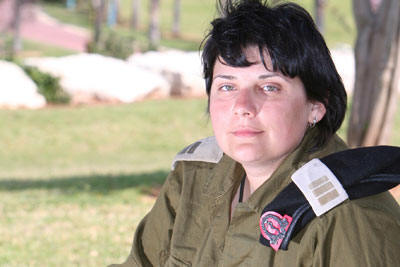 Six
years ago, when Marina Kaminski was in Russia, her
country of origin, she decided to follow her family and
immigrate to Israel. Following her emigration she
volunteered to serve the IDF as a combat doctor. She
quickly went from being a talented doctor in the Russian
military hospitals to becoming a renowned doctor in the
Israel Defense Forces. "I don't see how being a woman
changes anything. I am a combat soldier
Six
years ago, when Marina Kaminski was in Russia, her
country of origin, she decided to follow her family and
immigrate to Israel. Following her emigration she
volunteered to serve the IDF as a combat doctor. She
quickly went from being a talented doctor in the Russian
military hospitals to becoming a renowned doctor in the
Israel Defense Forces. "I don't see how being a woman
changes anything. I am a combat soldierMarina Kaminsky
like every other combat doctor. Obviously, I don't have a high physical fitness as a Paratroop Corps doctor, but I am sure I am as strong as some of them," added Kaminski. Following completion of the Medical Officers' Course with honors, Kaminski fought her way into becoming the highest ranking female doctor in the IDF. In 2005, Kaminski took part in combat operations on the axis routes in the Palestinians territories. In a number of instances, she treated both Israeli soldiers and Palestinian civilians injured in the field. These incidents present only further proof of the great work she has done in her position as combat doctor.
Kaminski's moment of truth came in July of last year, a year and two months after beginning her duty as combat doctor. The Bokim Battalion entered Lebanese territory on the first day of the war and was involved in combat operations in Kanatra, Maroun-A-Ras and the town of Bint Jbeil. Her entrance into Lebanon, with the troops of the battalion, signaled an anomaly Kaminsky never thought would occur. "There is a law that states that women are not allowed to enter Lebanese territory during war. When my entrance into Lebanon was first forbidden, I informed my commanders that if I took upon myself a position in the battalion, my gender should not play a role. There would be no way I would leave my soldiers behind," she stressed. In the end Marina received permission to enter Lebanon and to accompany her battalion in a tank-bulance. Marina came very close to getting injured during combat, after Hezbollah operatives fired AT-3 Sagar anti- tank guided missiles at the building her battalion was using as a stronghold. The destruction was catastrophic; two soldiers were killed and more were wounded; many were in severe condition. "I didn't think about myself, I immediately began tending to the wounded even while the shooting continued. I felt no fear; during instances like those there is no time to think of fear, you just think about tending to the wounded. A doctor is truly tested during these tense moments, it's all part of the job," explains Kamiski.
During combat in Bint Jbeil Marina tended to 25 wounded soldiers, which earned her a merit award from the Minister of Defense for her personal acts of courage. She also was awarded a merit award from the GOC Central Command. Her wedding following the war was a prize of no less importance. "I think I matured from my experiences in the war. I began looking at my life in a different way and appreciating it much more. I only did what was asked of me during the war, the soldiers of the brigade really deserve all the praise," she humbly said. In the meantime, the battalion has returned to routine operations and with it Marina, who made it known she didn't plan to abandon her troops following the conclusion of the war. "I usually spend more time with the troops than with my family. If there is one thing I did learn about myself in the war its that I will never abandon my second family, the children of the battalion."
The preceding story was provided by Israel's Defense Force.
(Return to top)

President Bush and Rep. Barney Frank indicate bipartisanship agreement on mortgage problems
WASHINGTON, DC (Press Release)—President George W. Bush and House Financial Services Committee Chairman
Barney Frank
(Democrat, Massachusetts) in separate statements indicated bipartisan agreement is possible between the Republican administration and the Democratic Congress on what to do about the troubled home mortgage market.
President Bush, joined by Treasury Secretary Henry Paulson and Housing Secretary Alphonso Jackson, spoke on the issue today in the White House Rose Garden. Later in the day, Frank issued a point-by-point press release.
Here is a transcript of Bush's comments:
One area that has shown particular strain is the mortgage market, especially what's known as the sub-prime sector of the mortgage market. This market has seen tremendous innovation in recent years, as new lending products make credit available to more people. For the most part, this has been a positive development, and the reason why is millions of families have taken out mortgages to buy their homes, and American homeownership is at a near all-time high.
Unfortunately, there's also been some excesses in the lending industry. One of the most troubling developments has been the increase in adjustable rate mortgages that start out with a very low interest rate and then reset to a higher rate after a few years. This has led some homeowners to take out loans larger than they could afford based on overly-optimistic assumptions about the future performance of the housing market. Others may have been confused by the terms of their loan, or misled by irresponsible lenders. Whatever the reason they chose this kind of mortgage, some borrowers are now unable to make their monthly payments, or facing foreclosure.
Complicating the situation for borrowers is the nature of today's mortgage market. In many cases, the neighborhood banker who issued a family's mortgage does not own that mortgage for long. Instead, mortgages are sold as securities on the global market. And that makes it harder for the lender and borrower to renegotiate.
The recent disturbances in the sub-prime mortgage industry are modest -- they're modest in relation to the size of our economy. But if you're a family -- if your family is one of those having trouble making the monthly payments, this problem doesn't seem modest at all. I understand these concerns, and therefore, I've made this a top priority to help our homeowners navigate these financial challenges, so that many families as possible can stay in their homes. That's what we've been working on, a plan to help homeowners.
We've got a role, the government has got a role to play -- but it is limited. A federal bailout of lenders would only encourage a recurrence of the problem. It's not the government's job to bail out speculators, or those who made the decision to buy a home they knew they could never afford. Yet there are many American homeowners who could get through this difficult time with a little flexibility from their lenders, or a little help from their government. So I strongly urge lenders to work with homeowners to adjust their mortgages. I believe lenders have a responsibility to help these good people to renegotiate so they can stay in their home. And today I'm going to outline a variety of steps at the federal level to help American families keep their homes.
First, we're going to work to modernize and improve the Federal Housing Administration -- that's known as the FHA. The FHA is a government agency that provides mortgage insurance to borrowers through a network of private sector lenders. Sixteen months ago I sent Congress an FHA modernization bill that would help more homeowners qualify for this insurance by lowering down-payment requirements, by increasing loan limits and providing more flexibility in pricing. These reforms would allow the FHA to reach families that need help, those with low incomes and less-than-perfect credit records or little savings.
Last year the House passed this bill with more than 400 votes. Unfortunately, Congress hasn't acted this year. It would be a good task for Congress to come and get FHA modernization done so that we can help these people refinance their homes, so more people can stay in their homes. I look forward to signing a bill as quickly as possible.
In the coming days, the FHA will launch a new program called FHA-Secure. This program will allow American homeowners who have got good credit history but cannot afford their current payments to refinance into FHA-insured mortgages. This means that many families who are struggling now will be able to refinance their loans, meet their monthly payments and keep their homes. In other words, we're going to start reaching out and making sure people know that this option is available to them so they can stay in their homes.
Second, I'm going to work with Congress to temporarily reform a key housing provision of the federal tax code, which will make it easier for homeowners to refinance their mortgages during this time of market stress. Under current law, homeowners who are unable to meet their mortgage payments can face an unexpected tax bill. For example, let's say the value of your house declines by $20,000 and your adjustable rate mortgage payments have grown to a level you cannot afford. If the bank modifies your mortgage and forgives $20,000 of your loan, the tax code treats that $20,000 as taxable income. When your home is losing value and your family is under financial stress, the last thing you need to do is to be hit with higher taxes.
So I believe we need to change the code to make it easier for people to refinance their homes and stay in their homes. And to this end, I've called Senator Debbie Stabenow of Michigan and told her that she's on to a good idea with the bill that she and George Voinovich have submitted to the Senate. The House has got Rob Andrews of New Jersey and Ron Lewis of Kentucky introducing legislation that is a positive step toward changing the tax code so people aren't penalized when they refinance their homes. With a few changes in the Senate version and the House version, this administration can support these bills, and we look forward to working with them -- the senators and the members of the House -- to pass common-sense legislation to help us address this issue.
Third, my administration will launch a new foreclosure avoidance initiative to help struggling homeowners find a way to refinance. Secretary Jackson and Secretary Paulson are going to reach out to a wide variety of groups that offer foreclosure counseling and refinancing for American homeowners. These groups include community organizations like NeighborWorks and mortgage lenders and loan services, and the FHA, as well as government-sponsored enterprises like Fannie Mae and Freddie Mac. These organizations exist to help people refinance, and we expect them to do that.
See, it's easy for me to stand up here and talk about refinancing -- some people don't even know what I'm talking about. And we need to have a focused effort to help people understand the mortgage financing options available to them, or to identify homeowners before they face hardships and help them understand what's possible.
Finally, the federal government is taking a variety of actions to make the mortgage industry more transparent, more reliable and more fair, so we can reduce the likelihood that these kind of lending problems won't happen again. Federal banking regulators are improving disclosure requirements to ensure that lenders provide homeowners with complete and accurate and understandable information about their mortgages, including the possibility that their monthly payments could rise dramatically. In other words, we believe that if the consumer is better informed, these kind of problems won't arise -- are less likely to arise in the first place. Banking regulators are also strengthening lending standards to help ensure that borrowers are not approved for mortgages larger than they can handle.
This administration will soon issue regulations that require mortgage brokers to fully disclose their fees and closing costs. We're pursuing wrongdoing and fraud in the mortgage industry through the Department of Housing and Urban Development, the Department of Justice, the Federal Trade Commission, and other agencies. In other words, if you've been cheating somebody we're going to find you and hold you to account. And we'll continue to do our part to help improve all aspects of the mortgage marketplace that is really important to this economy of ours.
With all the steps I've outlined today we will deliver help and hope to American families who need it. We'll help guard against future problems in the housing sector. We'll reaffirm the vital place of homeownership in our nation. When more families own their own homes, neighborhoods are more vibrant and communities are stronger, and more people have a stake in the future of this country...
Thereafter, Frank issued a press release:
“I welcome the Administration’s recognition that a greater public response is required and I look forward to working with them because I agree with a number of specific things that they propose. The Financial Services Committee has already advanced legislation, including a GSE bill that awaits Senate consideration, and we hope to send the FHA bill over soon. We also are working with the Ways and Means Committee to address the tax issues involved. However, there are some points of difference that we will need to work out going forward:
With regard to the FHA, going forward, I don’t think that working people and lower income people who are making payments to the federal government should be charged more than others.
Second, I agree that the rules that regulators have developed for banks have been good ones, but I believe that federal action is necessary to apply them to all originators and the time for further study is over.
Third, there should be some rules to provide some quality assurance to investors in the secondary market. At his speech in Jackson Hole, Federal Reserve Chairman (
Next, I continue to believe that the portfolios of Fannie Mae and Freddie Mac can play a bigger role than they are currently are playing, particularly in helping the refinancing of subprime mortgages that are about to experience significant interest rate increases. I believe that the Administration’s objections to this are not based on safety and soundness grounds, but represent their one remaining ideological refusal to recognize the need for a greater institutional role in this regard.
Finally, there needs to be a federal role in the construction of new affordable housing and preservation of existing affordable housing.”
The preceding story combined materials provided by the White House and by the office of Congressman Frank
(Return to top)
NJDC mourns passing of former Rep. Charles Vanik
WASHINGTON, D.C. – Former Ohio Democratic Congressman Charles Vanik passed away Thursday at age 94. Today, the National Jewish Democratic Council (NJDC) released the following statement by NJDC Executive Director Ira N. Forman:
“The entire NJDC family is saddened to learn of the death of former Congressman Charles Vanik. Representative Vanik will be remembered as a strong friend to the Jewish community who gave his heart and soul to the cause of Soviet Jewry. He was a voice for thousands who fled Soviet oppression, and indeed there are countless Jews who owe their freedom to his valiant efforts.
“Our hearts go out to the Vanik family.”
The preceding story was provided by the National Jewish Democratic Council

{Click
the above ad for more
information
Democrat Carl Levin salutes Republican John Warner on announcement of his retirement
WASHINGTON, D.C. (Press Release)—U.S. Sen. Carl Levin (Democrat, Michigan) who took over the chairmanship of the Senate Armed Services Committee from U.S. Sen. John Warner (Republican, Virginia) when party control of the U.S. Senate changed, today issued a statement reacting to Warner's retirement announcement.
“For three decades, John Warner has been a great Senator and a great friend. The nation will miss him following his retirement, the Senate will miss him, and I will sorely miss him.
"Senator Warner has served in the finest tradition of the United States Senate – a tradition of bipartisan dedication to the national defense of our country established by such giants of the Senate as Arthur Vandenberg, Richard Russell, Henry Jackson and Barry Goldwater. The Senate and the nation, and especially the men and women of our armed forces and their families, owe him a huge debt of gratitude for his selfless service.”
The preceding story was provided by the office of U.S. Sen. Carl Levin
|
Judaism |
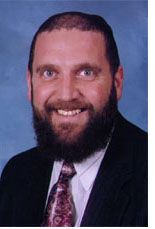 Rabbi
Baruch Lederman Rabbi
Baruch Lederman
Amazing tales of Judaism |
D'var Torah - Hashpa'a
We are all teachers; in fact, teachers of teachers
SAN DIEGO—Rabbi Eli Rosenholtz told me that Reb Dovid Leibowitz ztz"l, Rosh U'meyaseid Yeshivas Chofetz Chaim (RSA), used to cite the Talmudic dictum, that one should learn not only from the teachings of his rebbi, but from his actions. Reb Dovid would then exhort his talmidim (students): It looks like this is speaking to the talmidim, telling them to observe and learn from every facet of their Rebbi; but it is also speaking to the Rebbi: it is saying that we must strive to be the type of Rebbi that our talmidim can learn from all our actions.
Rav Shlomo Heiman ztz"l was a Rebbi in New York. One day there was a blizzard, so when he arrived to give his shiur (lecture), his normally crowded shiur had only four boys. As was his custom he gave a dynamic, booming, dramatic discourse. He was as animated as if he were giving the shiur to a huge assembly. One of the boys asked him why he gave such a powerful presentation when there were only four boys present. He answered, "Do you think I was giving the shiur only to you? I was giving it for you and all your talmidim and talmidim of your talmidim. I was giving it for the generations to come. I had to give my all."
The following story from the Talmud (Brachos 11a) illustrates both of the above principles. Rebbi Yishmael and Rebbi Elazar ben Azariah were lodging at an inn. While they were dining, Reb Yishmael was reclining and Rab Elazar was standing up. When it came time to say the krias Shema, Rebbi Elazar reclined. Suddenly, Rebbi Yishmael rose upright and stood to recite the Shema. Rebbi Elazar asked him why he suddenly stood up. It puzzled Rebbi Elazar that as soon as he reclined, Rebbi Yishmael rose up. What's more, the
Rebbi Elazar commented, "My brother Yishmael, your conduct reminds me of a person who receives compliments on his beard and responds by shaving it off."
Rebbi Yishmael replied as follows: "We all know that there is a dispute between the sages of Bais Shammai and the sages of Bais Hillel regarding the recitation of Shema. Bais Shammai says that uvshacbcha uvkumecha (in your reclining and in you arising) means to say the morning Shema upright and the evening Shema reclining. Bais Hilled holds that uvshacbcha uvkumecha is not telling us what position we need to be in, it simply means to describe the times we say Shema: uvshacbcha means evening (when you recline) and uvkumecha means morning (when you arise). But the Shema can be recited in either position.
Since both you and I were reclining during our recitation of Shema, I was afraid that the talmidim might observe us and assume that we ruled like Bais Shammai, which would be an error as we do not poskin (rule) this way. I arose so that they would see us each in a different position and realize that the halacha is in accordance with Bais Hillel that you may recite Shema in whichever position you choose."
Rebbi Yishmael was ever aware that his students would be learning and making conclusions from his actions. He realized that his actions, though perfectly valid, could cause confusion amongst the students, for the students are always watching, observing and absorbing. He also realized that the students would go on to teach others. A momentary confusion could turn into an error in Jewish Law that could last for generations.
We all are teachers in one way or another, whether as a Rabbi with talmidim, a parent with children, a faithful active Jew within our community. It means so much for us to realize that our actions have a far reaching, long lasting effect on others. We can strive to be the type of person whose actions and whose very essence provides illumination and inspiration to others.
Dedicated by Dr. Leonard Antick in memory of his wife MayBeth Rosenberg Antick, and his parents Frank & Ruth Antick.
|
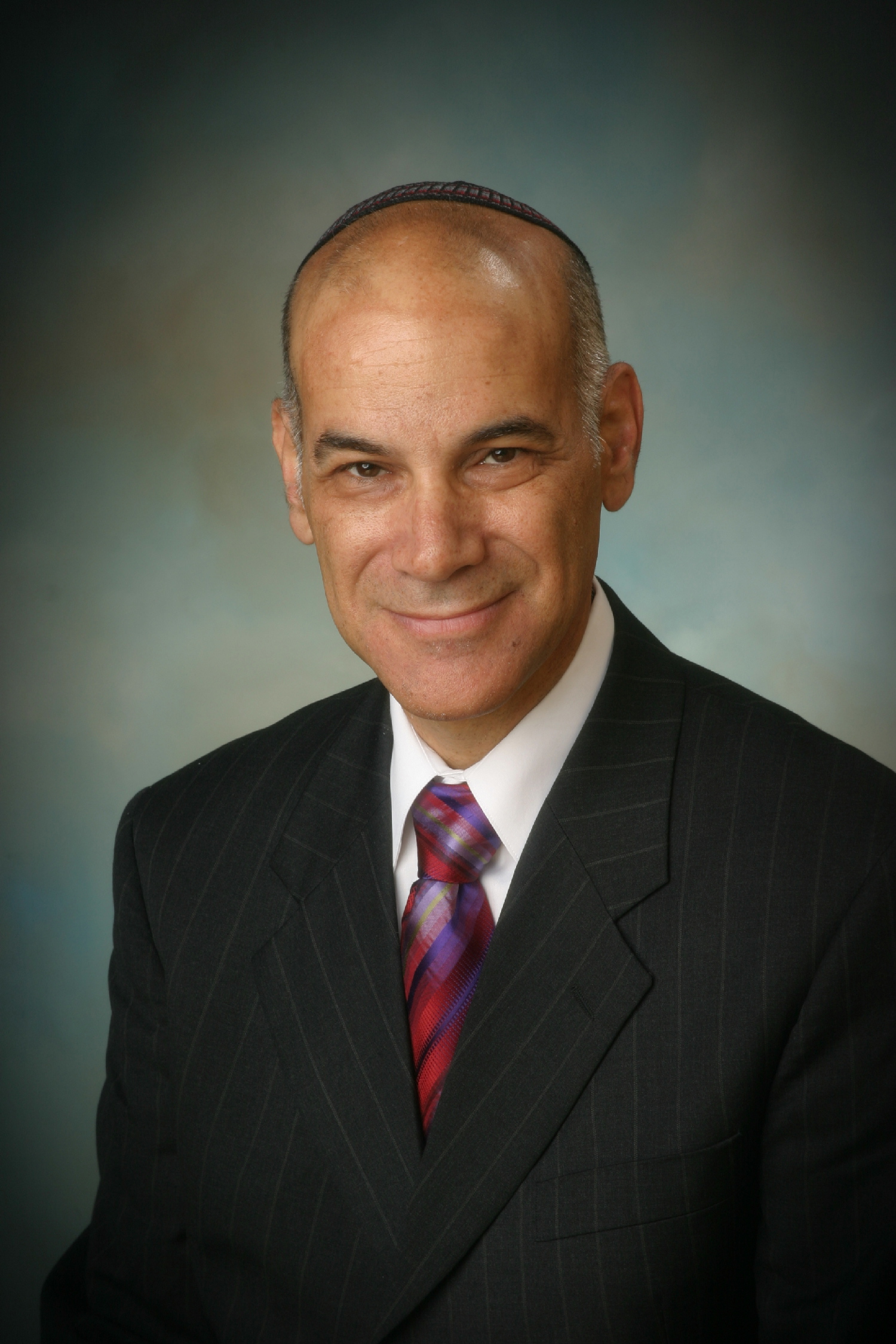 Torah
on One Foot Torah
on One FootBy Rabbi Leonard Rosenthal Tifereth Israel Synagogue, San Diego
|
SAN DIEGO—Parshat Ki Tavo opens with the "First Fruits" ceremony the Israelites were to perform after they settled Eretz Yisrael. Israelite farmers were to take a portion of the first harvest of every crop they planted and bring it as an offering to Jerusalem. When they brought their First Fruits they recited a paragraph found in Ki Tavo which acknowledges God’s goodness in bringing them to their ancestral homeland.
It concludes: "He brought us to this place and gave us this land, a land flowing with milk and honey. Wherefore, I now bring the first fruits of the soil which You, O Lord, have given me." (Deut. 26:9-10)
The remainder of this parasha is filled with blessings and curses. It details the blessings that will come to the Israelites if they follow God’s word and the curses that will afflict them if they disobey. We call these verses the tochecha, the "reproach." Since we are not proud that God has to threaten us so harshly for our disobedience, we read them quickly and quietly in the synagogue.
Since we do not like to dwell on the curses, I prefer to expand on one of the blessings instead!
Deut. 28:6 tells us that if we are faithful to God: Baruch ata bevoecha u’varuch ata b’tzeitecha, "Blessed shall you be in your comings and blessed shall you be in your goings." In the Etz Haim commentary we learn that: "[The Biblical interpreter] Abarbanel takes blessedness in these activities to mean safety in traveling to and from a city." (Etz Haim, p. 1149)
It is most likely from Abarbanel’s interpretation of this verse that the custom arose of blessing those traveling from place to place with words: "tzeitchem l’shalom u’voachem l’shalom," "May you go in peace and return in peace." Paraphrasing the Torah, we wish travelers a safe and happy journey.
I have often wondered about the appropriateness of using these words to bless members of our congregation who are traveling to Israel. While we certainly want to wish them a safe journey, is it realistic to pray that they will return b’shalom? Shalom means more than physical peace. The root of shalom is shalem. Shalem means wholeness and one-ness. Only people who resolve their inner conflicts and quench their longings can be at peace with themselves.
My experience is, that while possible to travel to Israel with shalom, peace, wholeness, and one-ness, it is impossible to return from Israel in peace, because one always feels that some part of them is left behind.
To this day I recall the first time I left Israel. It was after spending my Junior year of college at Hebrew University. I rode in the taxi to the airport in silent sadness, knowing on one hand I had to leave but on the other hand that I wanted to stay. The last thing I felt was shalom. To this day I suffer the same mixed emotions on my return trip to Ben Gurion Airport.
The only way I have found it possible to return to the United States with some kind of peace is to promise myself that I will not allow too much time to pass before I return to Eretz Yisrael. I have also discovered that I can further increase my sense of balance and well being after I am back by sharing my experiences with others, teaching them about the beauty of Israel and its meaning to our religion and people, and urging them to travel to and support our holy land themselves.
Perhaps we will never feel the same shalom returning from Israel as we do traveling and visiting there, but we can reduce the dissonance by supporting and sharing our love of Israel with others
The Jewish Grapevine  |
CYBER-REFERRALS—
San Diego Jewish World appreciates and thanks those individuals and organizations which recommend stories of interest to the worldwide Jewish community:● Israel's Consulate General in Los Angeles: A story in Ha'aretz how Hamas police wounded 20 persons dispersing a Fatah protest in Gaza. Here is the link
● Jay Jacobson: An article in Ha'aretz by Danny Rubinstein looking ahead toward Israeli-Palestinian peace talks. Here is the link.
● Hillel Mazansky: A Hebrew language slide show on the ruins at Be'it Shean. You need to click on the screen each time you want a new photo. Here is the link.
● Republican Jewish Coalition: An article in the National Review by Peter Wehner comparing the U.S. Civil War with the course of the current Iraq War. Here is the link.
●United Jewish Communities: A story that the body of two sailors were found following a collision between ships at sea. Here is the link.

 .
.
_____________

Click the ad above to go to the "I'm there for you baby" website
|
____________________ 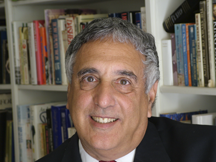 The
Jewish
Citizen The
Jewish
Citizen
by Donald H. Harrison |
SDSU's Weber scorns academic boycott of Israel
SAN DIEGO—Recently returned to campus from summer travels, San Diego State University President Stephen Weber today added his name to a list of hundreds of North American university presidents who have come out in opposition to a proposed boycott of Israeli academic institutions.
 The boycott, proposed by members of Britain's University and College Union as a way of registering disapproval of Israeli policies toward Palestinians, has been denounced by nearly 400 university presidents, who endorsed a statement issued by Lee Bollinger, president of Columbia University.
The boycott, proposed by members of Britain's University and College Union as a way of registering disapproval of Israeli policies toward Palestinians, has been denounced by nearly 400 university presidents, who endorsed a statement issued by Lee Bollinger, president of Columbia University.
Steve Weber
Bollinger's statement, printed August 8 in The New York Times, said of the British union's boycott vote: "As a university professor and president, I find this idea utterly antithetical to the fundamental values of the academy where we will not hold intellectual exchange hostage to the political disagreements of the moment. In seeking to quarantine Israeli universities and scholars this vote threatens every university committed to fostering scholarly and cultural exchanges that lead to enlightenment, empathy, and a much-needed international marketplace of ideas.
"At Columbia I am proud to say that we embrace Israeli scholars and universities that the UCU is now all too eager to isolate—as we embrace scholars from many countries regardless of divergent views on their government's policies. Therefore, if the British UCU is intent on pursuing its deeply misguided policy, then it should add Columbia to its boycott list, for we do not intend to draw distinction between our mission and that of the universities you are seeking to punish. Boycott us, then, for we gladly stand together with our many colleagues in British, American and Israeli universities against such intellectually shoddy and politically biased attempts to hijack the central mission of higher education."
Weber told San Diego Jewish World that once he read the petition, "I completely agreed with it, signed it, and sent it in."
He also added a statement of his own: "I'm opposed to intellectual boycotts of any kind as antithetical to the life of the mind and to academic freedom."
Weber is a director of the Peres Center for World Peace, founded by Shimon Peres when the latter was a former prime minister of Israel. Peres since has become Israel's president. Weber and Peres became acquainted in 1997 when Peres traveled to San Diego State and was granted an honorary doctorate.
Peres previously had helped facilitate the work of SDSU's Hansen Institute for World Peace, which brought together experts from Israel and Arab countries to work together to counter the spread of desert conditions in the Middle East,
San Diego State University also has had a visiting Israeli scholar program
since 1984, when it was established by visiting political scientist Jacob Goldberg,
This year, the professor is Dr. Lina Lukitz of Hebrew University, a scholar of the modern Middle East with a specialty in the affairs of Iraq.
SDSU History Prof. Lawrence Baron, who formerly headed the Judaic Studies program, welcomed Weber signing the Bollinger letter, which he noted was similar to a petition signed by thousands of university professors, himself included, saying that for purposes of the boycott, they wanted to be considered as Israelis.
Weber said in his days as a professor of philosophy at such institutions as the University of Maine, Fairfield University and SUNY-Oswego, "I fought some of these battles.. " In one particular instance, he recalled, there was a resolution before the American Philosophical Association to censure someone's point of view. Although he strongly disagreed with the views of the person who was the subject of the resolution, he nevertheless voted against the resolution.
"If you put barriers to the movement of ideas, it never works," he said. "Ideas are far more slippery than water." The whole concept of an academic boycott, he added, "shows a misunderstanding of what universities are about."
(Return to top)
Astor Judaica Library now has full print and e-version editions of Encyclopedia Judaica
SAN DIEGO (Press Release)—The Encyclopedia Judaica” new 22-volume edition will be available soon at the Astor Judaica Library!
Yes, we are excited to announce that both the print and the eBook editions of the Encyclopedia Judaica is being purchased for the Astor Judaica Library.
Thanks to Beverly & Larry Rosenberg for their generous donation, to Stanley & Beverly Berger, to Roberta & Ralph Berman, to Heidi & John Farkash and to Sandra Silverstein who are kindly joining them. This valuable work is the first comprehensive new Jewish encyclopedia in 34 years. It has been extensively revised and expanded, with more than 21,000 signed entries.
Lawrence Family JCC members will have the opportunity to consult the eBook edition on-line. You can help us by sponsoring one or more of the remaining volumes for a donation of $180 per volume. A specially-designed bookplate will be placed in each volume you sponsor.
The preceding story was provided by the Astor Judaica Library

News from the Israel Baseball League |
A summer when baseball players were all pioneers
By Ari Alexenberg
PORTSMOUTH, New Hampshire—This summer I lived a multi-layered dream. I played professional baseball in Israel, I signed autographs for smiling children and excited adults, I helped to introduce a sport I love to a country I love, and I made friends with ball players from around the world who share my passion for baseball. I had daily conversations with World Series winning major leaguers, I read about the games daily in both Hebrew and English newspapers, I spent this summer doing what millions fantasize about doing but only a very select few get the chance to do. I lived a dream this summer and while doing so thousands of baseball fans were entertained. It doesn’t get much better than that.
 Don’t get me wrong, it wasn’t a perfect summer. Most of the players were housed and fed at Hakfar Hayarok, a youth village where about 1000 students live and go to school. The facilities were modest at best. The first weeks were rough. There was no place to work out, there was no physiotherapy on campus, the food was inappropriate for the players, the laundry situation was a mess, games were postponed due to fields not being ready, there was no ice for the players, my teammate got hit in the head by a line drive that ended his season,
Don’t get me wrong, it wasn’t a perfect summer. Most of the players were housed and fed at Hakfar Hayarok, a youth village where about 1000 students live and go to school. The facilities were modest at best. The first weeks were rough. There was no place to work out, there was no physiotherapy on campus, the food was inappropriate for the players, the laundry situation was a mess, games were postponed due to fields not being ready, there was no ice for the players, my teammate got hit in the head by a line drive that ended his season,
paychecks were postponed for a few days and I played for the Petah Tikva Pioneers which means I felt the pain of losing far too often. Like I said it wasn’t a perfect summer. The players were frustrated. But it did not remain that way.
The players and league officials started meeting on a regular basis and changes were made. One by one things came together and by mid season it was all about playing ball. The frustrations of growing pains were a small price to pay to be part of bringing high caliber baseball to Israel.
I am grateful to have been chosen to be member of a select fraternity that shared this summer breathing life into the dream of bringing professional baseball to Israel. Judging by the attendance and fan enthusiasm at many of the games there are thousands of grateful fans too and next year there will be more. Whether you hail from or play for Petah Tikva doesn’t matter, this summer we were all pioneers.
Now that I am back stateside I keep thinking back on a glorious summer. I see 6’7” Dominican Maximo Nelson in the dugout before the game fooling around with a giggling seven year old bat boy with tzitit hanging from his sides. On the far side of the dugout sits “Miracle Met” Art Shamsky looking at his lineup card. I hear a teammate ask if I am finished stretching and ready to have a catch, I see the sun setting at magical Gezer Field while the fans are cheering their beloved Blue Sox. I hear Australian, Dominican, Israeli, American, Japanese and Canadian accents in the dugout, I feel the excitement and tension of being on the mound in a tight game, I see long home runs, diving catches, head first slides and nasty curve balls. I hear American Israeli’s explaining to native Israelis the rules and joys of baseball, I see fans davening Mincha (afternoon prayer) by the concession stand, I hear the guys sitting around at night playing cards and talking baseball. I miss the sound of Hatikvah being played everyday while the Israeli flags waved on the outfield fences. Maybe it was a perfect summer.
Ari Alexenberg, 46, was a player and coach in the IBL this summer. In the off season he has worked integrating technology, sports, art and marketing as both an entrepreneur and manager. In his spare time he analyzes baseball endlessly in a quest to solve the sport. He resides in New Hampshire.

{Marc Kligman, who combines being a sports agent with his life as an observant Jew, invites you to listen. Click on the ad above for more information}
SAN DIEGO (Press Release) – J*Company Youth Theatre, a program of the San Diego Center for Jewish Culture at the Lawrence Family Jewish Community Center, JACOBS FAMILY CAMPUS, is pleased to announce its 15th Anniversary season, featuring Susan Egan in Concert: the Belle of Broadway, and four Disney-themed productions including Disney’s HIGH SCHOOL MUSICAL; Disney’s THE JUNGLE BOOK Kids; Elton John & Tim Rice’s AIDA; and Disney’s 101 DALMATIANS Kids.
Susan Egan, one of Broadway’s most celebrated contemporary performers, will perform on Saturday, September 29, 2007, at 7:30 p.m. Egan was nominated for a Tony Award for her role as the original Belle in Disney’s BEAUTY AND THE BEAST. She was also critically acclaimed as Broadway’s longest-running Sally Bowles in CABARET, and is New York’s latest THOROUGHLY MODERN MILLIE. Susan Egan in Concert: the Belle of Broadway is the kickoff event of J*Company Youth Theatre’s 2007-2008 season.
The Disney Channel’s smash hit musical comes to life on stage with the production of Disney’s HIGH SCHOOL MUSICAL. This is the phenomenon that has re-popularized the musical theatre art form and broken all Disney records. It is the classic teenage tale where the jock falls in love with the smart, shy girl. But there’s a twist when it is the power of the arts that brings them together. Disney’s HIGH SCHOOL MUSICAL runs October 18-28, 2007, and will be directed by Rayme Sciaroni.
Disney’s THE JUNGLE BOOK Kids, based on Rudyard Kipling’s beloved characters, runs December 6-16, 2007. The jungle is jumpin’ with jazz in this exciting Disney classic! Mowgli, Baloo, King Louie, and the gang swing their way through madcap adventures and thwart the ferocious tiger Shere Khan. Specially adapted from the beloved film, this musical includes favorite Disney tunes such as “The Bare Necessities” and “I Wanna Be Like You.” With colorful characters and toe-tapping jungle rhythm, it is sure to be a crowd-pleaser for audiences of all ages. Directed by J*Company Artistic Director Joey Landwehr.
Elton John & Tim Rice’s AIDA, running March 1-16, 2008, is a contemporary musical take on the grand classic tale of the love between a soldier and an enslaved princess – a love that ultimately transcends the vast cultural differences between their two warring nations, heralding an unprecedented time of peace and prosperity. With a pop-rock score that features stirring ballads and rousing choral numbers, it is a modern crowd pleaser for adults and kids alike. AIDA will be directed by J*Company Artistic Director Joey Landwehr.
Disney’s 101 DALMATIANS Kids, running May 8-18, 2008, is a tale certain to charm and delight. In a loving home in the city of London, Dalmatian parents Pongo and Perdita happily raise their Dalmatian puppies until the monstrous Cruella De Vil plots to steal them for her new fur coat! All the animals of London daringly rescue the puppies from Cruella and her bumbling henchmen. This stage adaptation has a delightfully fun score, lovable characters, and one of the most deliciously evil villains in the Disney canon. Directed by J*Company Artistic Director Joey Landwehr.
“This year J*Company turns fifteen, and to celebrate we offer the biggest and most magical season ever,” said Landwehr. “I encourage everyone to keep their arms and legs in the car at all times as we take this exciting ride into the wonderful world of Disney.”
General Information
Subscriptions and single tickets to J*Company’s 15th Anniversary season of Disney’s HIGH SCHOOL MUSICAL, Disney’s THE JUNGLE BOOK Kids, Elton John & Tim Rice’s AIDA, and Disney’s 101 DALMATIANS Kids are currently on sale. Tickets for Susan Egan in Concert: the Belle of Broadway are $30-$36. All performances take place at the David and Dorothea Garfield Theatre at the Lawrence Family Jewish Community Center, JACOBS FAMILY CAMPUS, 4126 Executive Drive, La Jolla. Call 858-362-1348 or visit www.lfjcc.org/jcompany for more information.
The preceding story was provided by the Lawrence Family Jewish Community Center
 People
of the Books People
of the Books |
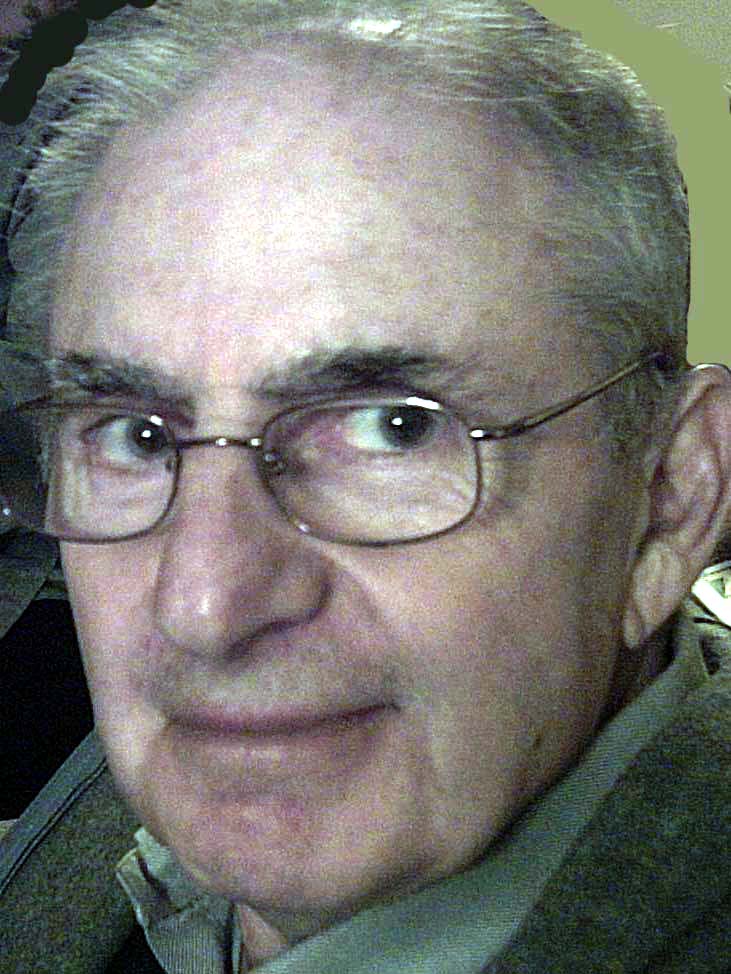 Dov Burt Levy
Dov Burt LevyA book to read backward and forward |
SALEM, Massachusetts—Most of us wish we had more pictures and more stories about how it was for our parents, grandparents or great-grandparents who made the voyage to the United States between 1880 and 1920. Many of us don't know where they lived, what type of work they did, and what they did for leisure. Most of us were either too young, or too dumb, to ask them directly. Now, in many cases, it is too late. The best we can do is to read about their lives in books.
We are in luck. The Forward (Forverts in Yiddish) newspaper has published a book of over 500 Forward photographs taken between 1897when the Forward began, through 2005.
Not only do you get these pictures, many from New York City but others from all over America and the world, you get 14 essays from writers, including Roger Kahn on sports, Ruth Wisse on the exodus from Europe, Nathan Glazer on politics, and Leon Wieseltier on "Holy Hollywood."
The book's introduction is by Pete Hamill, who is Irish. Perhaps those who put the book together thought too many Jews would want the honorof writing the first essay, so they'd protect themselves by choosing somebody who is not Jewish. Actually, they picked the best person forthe job. Hamill, a longtime New York reporter, columnist and novelist,proves true the old comedy shtick about how everybody in New York
City, regardless of race, color, creed or religion, is Jewish. Hamill fits that description; he surely knows the Jewish community.
Hamill's essay is largely about Abraham Cahan, an immigrant from Vilna, Lithuania, one of the founders of The Forward in 1897, who served as editor from 1903 until his death in 1951. Cahan was a unique and widely known personality. A democratic socialist all his life, Cahan spoke for, and to, the diverse Jewish community made up of new immigrants and their offspring.
Under Cahan's editorship, the Forverts spoke and listened to the gangsters, show biz hopefuls and stars, business people and garment workers, bookies and book sellers, young and old, Zionists and anti-Zionists, everybody. At its highpoint, the Forward circulation was over a quarter of a million daily papers.
Cahan hired great writers; perhaps the most famous was Nobel Prize winner Isaac Bashevis Singer, who was preceded at the newspaper by hisolder brother, Israel Joshua Singer.
Hamill interviewed Bashevis Singer following the receipt of the Nobel Prize. "We spoke of many things that day, but his eyes sparkled when I asked about his newspaper. 'I love the Forverts,' he said. 'It gave me my American life.'"
Why am I writing about all those great essays when the book really consists of black and white photographs? The answer is easy. These essays are very good.
But so are the photographs. The first picture features a crowd of onlookers on a Lower East Side street watching two men trying to revive a workhorse that had collapsed. The last picture is the current home of The Forward on East 33rd Street-Shalom Aleicham Place. Between those pictures is a wide sampling of Jewish life, personalities and
events. There are butchers and bakers and soldiers and politicians and boxers and singers and rabbis and teachers and heads of Jewish organizations, and Soviet immigrants and artists and Hassids andteachers and novelists and movie moguls — even a picture of the Dalai Lama meeting with a rabbi.
I could go on and on because, after all, there are more than 500 pictures in this over-sized book. But I won't take away from your enjoyment.
Because the Jewish world is so large and I was born a long time after 1890, I hardly expected to find anyone in the book I knew personally. However, I was taken aback (and delighted) to find on page 203, my rabbi during my Air Force service in Paris in 1955-56. Captain HarryZ. Schreiner was pictured greeting two army nurses after Rosh Hashanah services in Korea. It's a small world.
Shabbat Shalom, Chaverim





